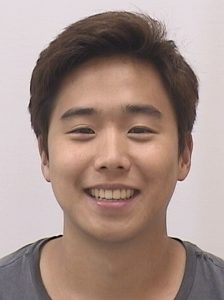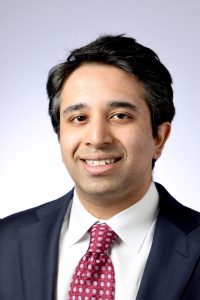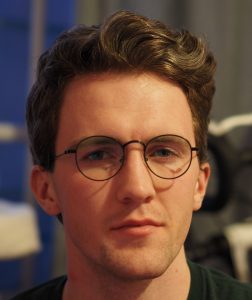The Malone Center hosted a “Mix & Mingle” event for affiliated trainees on April 25 in Shriver Hall. The event featured lightning presentations on data science and engineering applications in medicine, followed by an awards ceremony and networking opportunities.

Ji Woong “Brian” Kim
Ji Woong “Brian” Kim, a PhD student of mechanical engineering, won the Audience Choice Award with his lightning presentation, “Towards General-Purpose Foundation Models in Robotic Surgery.”
Working with Malone affiliates Axel Krieger, an assistant professor of mechanical engineering, and Anton Deguet, an associate research engineer—as well as PhD student Samuel Schmidgall, Associate Professor Marin Kobilarov, and collaborators at Stanford University—Kim is leveraging vision-language models for robotic tasks in diverse settings, ranging from homes to operating rooms.
In his talk, Kim discussed his group’s work on learning fundamental surgical manipulation skills through imitation learning with the da Vinci surgical robot via video demonstrations of challenging skills, including needle manipulation, soft-body manipulation, and tying suture knots.
Two affiliated trainees tied as runners-up for the Audience Choice Award.

Aamir Javaid
Aamir Javaid, a resident physician in the Osler Internal Medicine Program at the Johns Hopkins Hospital, presented “Generative Artificial Intelligence as a Patient Companion.”
His team—comprising Malone affiliates Seth Martin, the director of the Advanced Lipid Disorders Program and co-director of the Digital Health Innovations Lab in the Ciccarone Center for the Prevention of Cardiovascular Disease, and Ayah Zirikly, an assistant research professor in the Center for Language and Speech Processing; graduate students Emir Syailendra and Robert Weinstein, research assistant Linda Tian, Assistant Professor Francoise Marvel, and Matthias Lee, Engr ’14 (MSE), ’17 (PhD)—is developing patient-facing conversational AI models to aid in the management of specific diseases.
Javaid and team want to see if providing patients with a clinically validated AI companion can help with tasks such as taking medicine, answering questions about treatment plans, and remote biometric monitoring. In the long run, they hope their effort will help unify the traditional model of episodic care and enhance patient engagement with and achievement of key health outcomes.

Benjamin Killeen
The other runner-up talk, “Advancing Surgical Healthcare One Simulation at a Time,” was presented by Benjamin Killeen, a PhD student of computer science.
Contributors to this research include Malone affiliates Mathias Unberath, an assistant professor of computer science, and Gregory D. Hager, the Mandell Bellmore Professor of Computer Science; Greg Osgood, the Chief of Orthopaedic Trauma in the Johns Hopkins Medicine Department of Orthopaedic Surgery; and the collective members of the Whiting School of Engineering’s Advanced Robotics and Computationally AugmenteD Environments (ARCADE) Lab.
In his talk, Killeen discussed his team’s efforts to bring advances in simulation closer to clinicians and patients in the form of robotic assistance systems, augmented reality guidance, surgical phase recognition algorithms, and virtual reality training curricula. Through synergistic connections among these applications, simulations emerge as a catalyst for innovation with the potential to shape the future of interventional care and improve patient outcomes.
Additional lightning presentations given at the event included:
- Eric Kernfeld, “Forecasting Expression after Genetic Perturbation in Human Cells”;
- Ime Essien, “Prevalence of Cognitive Frailty for Community-Dwelling Older Adults in Chicago”;
- Jacob Mitchell, “Cell-Cell Communication Alteration in the Tumor Microenvironment of Pancreatic Cancer Induced by Cancer Vaccines”;
- Marisa Morakis, “In vivo Human Sickle Cell Rheology with Oblique Back-Illumination Microscopy”;
- Radhika Jangi, “Joint Analysis of Single Cell RNA and ATAC Towards Identification of Dynamic Genetic Regulation of Gene Expression in Early Human Development”;
- Sue Min Cho, “Beyond Physical Interaction: Toward Seamless Human-Machine Interfaces in Healthcare”; and
- Yuzheng Dun, “A Robust Bayesian Method for Building Polygenic Risk Scores using Projected Summary Statistics and Bridge Prior.”
The Malone Center would like to thank all of its trainees for their valuable contributions to research with the immense potential to change patient lives, and looks forward to featuring more exciting trainee research at its next Mix & Mingle event.
